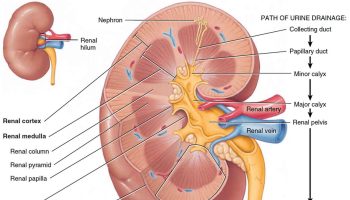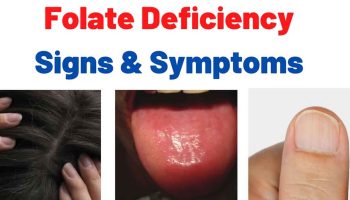Contents
What is transient global amnesia
Transient global amnesia is a temporary, inability to form new memories (anterograde amnesia) and a variable impairment of the past memory (retrograde amnesia), with an acute onset that usually occurs in middle-aged and older individuals lasting up to 24 hours and not otherwise associated with other neurological deficits 1, 2, 3, 4, 5. During an episode of transient global amnesia, a person is not able to make new memories. The person with transient global amnesia may be disoriented in regard to time and place, but can remember who they are and can recognize family members. Transient global amnesia typically lasts for 4 to 6 hours, but can last up to 24 hours 6. Since no new memories are made during a transient global amnesia episode, the person will never remember what happened during this period, but all other memory is usually intact. The inability to form new memories during an episode of transient global amnesia often causes patients to ask questions repetitively, while their identity, consciousness, and other neurologic functions remain intact 7, 8, 9. Most people have only one episode of transient global amnesia during their lifetime. Studies with a mean duration of follow-up of at least 3 years have found recurrence rates ranging from 2.9% to 23.8% 10, 11, 12, 13, 14, 15, 16, 17. The wide range of recurrence rates appears to reflect (1) variability of the strictness of the definition of transient global amnesia, with higher rates associated with more relaxed criteria for defining transient global amnesia; and (2) the relatively low numbers of patients with recurrent episodes, with a median of 12 patients with recurrent episodes across these studies. The differences in transient global amnesia recurrence rates among studies limit the ability of clinicians to discuss how likely it is that another event will occur 10, 11, 12, 13, 14, 15, 16, 17.
Transient global amnesia is considered a benign event that is unlikely to recur 6. Studies suggest that transient global amnesia is not associated with an increased risk for development of other neurologic disorders, such as stroke, dementia, or epilepsy 11, 12.
The underlying cause of transient global amnesia is unclear. Transient global amnesia is often precipitated by particularly strenuous exercise, Valsalva maneuver, high-stress events, strong emotion or sexual intercourse, but it can be seen with migraines as well 18. Studies have been inconclusive as to whether there are risk factors for the development of transient global amnesia, though some have suggested an association with a history of prior heart disease, migraine, or hyperlipidemia. These triggers support the prevailing theory that transient global amnesia may be caused by transient intracranial venous hypertension 7. There is also a strong association of transient global amnesia with migraine, suggesting a potential shared genetic or pathophysiological mechanism 19, 20, 21. However, the exact association between transient global amnesia and migraine remains unclear. Although there is a strong familial predisposition for migraine, there are only rare case reports of familial clusters of transient global amnesia. Furthermore, most individuals who experience migraine never have an episode of transient global amnesia.
The symptoms of transient global amnesia, once resolved, rarely recur and no other neurological deficits present with this condition. The diagnosis of transient global amnesia is largely a diagnosis of exclusion 22. The differential diagnosis when a patient presents with transient global amnesia should include intoxication on substance, Wernicke encephalopathy, ischemic stroke, epileptic disorder, transient ischemic attack, toxic encephalopathy, hypoxia, or head injury. However, the confusion is more global in many of these cases and it is not limited to memory loss or there are other presenting symptoms. In seizure-related memory loss, there is usually seizure-like activity prior to the onset, and the memory loss is almost purely retrograde; this differs from transient global amnesia which involves anterograde amnesia presenting with minimal retrograde amnesia confined to events surrounding the onset.
The diagnosis and management of transient global amnesia are best done with a multidisciplinary team that consists of a neurologist, internist, radiologist and primary care provider. The problem is that there is a very large differential diagnosis (see above) when patients present with amnesia and consequently the workup is often exhaustive and time-consuming. Once transient global amnesia is diagnosed, the treatment is supportive. The condition resolves spontaneously and rarely recurs. Patients though should be advised to lose weight, discontinue smoking, remain compliant with their medications, abstain from alcohol use and follow up with their primary care provider regularly. The outcome in most patients is good 23.
The incidence of transient global amnesia is about 5.2-10/100,000 per year in the general population 1. In individuals aged 50 and older, the incidence increases to 23.5 to 32/100,000 per year. The majority of reported cases have been in patients aged 50 to 80 years old 1. There is no gender difference. Although no clear risk factors have been identified, transient global amnesia has been noted more often in patients with a history of ischemic heart disease (coronary heart disease) and hyperlipidemia 1. There was not an associated history of prior ischemic stroke, diabetes, or hypertension noted. Many studies have demonstrated associated migraines in these patients, but this has not been demonstrated in all cases.
No treatment is needed for transient global amnesia. It resolves on its own and has no known lasting effects.
Seek immediate medical attention for anyone who quickly goes from normal awareness of present reality to confusion about what just happened. If the person experiencing memory loss is too confused to call an ambulance, call one yourself.
Although transient global amnesia isn’t harmful, there’s no easy way to distinguish the condition from the life-threatening illnesses that can also cause sudden memory loss.
Transient global amnesia causes
The underlying cause of transient global amnesia is unknown 24, 25, 26, 27, 28. Multiple theories exist regarding the true cause of transient global amnesia, but none are proven 29. These theories have included vascular phenomena, depression, migraines, epilepsy, or psychogenic origins 29. Studies have supported and debunked arterial ischemia as a source 29. Another possible cause is the overfilling of veins with blood due to some sort of blockage or other abnormality with the flow of blood (venous congestion). Vascular congestion was considered and is still one of the leading hypotheses, although questions regarding the associated with certain age groups and the fact that it is not seen with venous thrombosis have yet to be explained. In addition, transient global amnesia rarely occurs more than a couple times in a patient’s life. Essentially, the theories generated regarding the cause of transient global amnesia do not explain all of the clinical aspects of transient global amnesia to date 30, 31.
There appears to be a link between transient global amnesia and a history of migraines, though the underlying factors that contribute to both conditions aren’t fully understood.
While the likelihood of transient global amnesia after these events is very low, some commonly reported events that may trigger it include 32:
- Sudden immersion in cold or hot water
- Strenuous physical activity (i.e., gardening, housework, and sawing wood)
- Sexual intercourse
- Medical procedures, such as angiography or endoscopy
- Mild head trauma
- Acute emotional distress, as might be provoked by bad news, interpersonal conflict, birth/death announcement, and difficult/exhausting workday
- Acute pain
- Water contact/temperature change, (i.e., hot bath/shower and cold swim)
- Valsalva maneuvers 33
Quinette et al. 24 found a different profile of precipitating events between the sexes: in men, the transient global amnesia episode occurred more frequently after a strenuous physical event, whereas, in women, transient global amnesia was often precipitated by an emotional event. The same sex-related differences in the precipitating event profile were found in a recent retrospective observational analysis of 389 patients with transient global amnesia 28. In this study, emotional triggers were experienced more often by women (37.2% vs. 22.8%), while physical stressors were more frequent in men (30.7% vs. 41.1%) 28. In the same study, the emotional trigger was often classified as interpersonal conflict (42.7%) 28. However, emotional and psychological distress are frequent precipitating events in patients with transient global amnesia and are often associated with phobic personality traits 5, 24, 34, 27, 35.
The origin of transient global amnesia is thought to arise from the hippocampus, particularly the CA-1 and Sommer sector, and mediobasal temporal lobe 36. The hippocampal region noted is a watershed area of the brain that is especially subject to impact from various metabolic stresses, possibly due to sensitivity to cytotoxic glutaminergic uptake or release 37. These areas can be affected bilaterally or unilaterally, but are most common on the left side. In functional imaging, however, such as functional MRI, reversible defects were seen bilaterally. The patient transiently develops difficulty forming as well as retrieving new memories.
The presentation seen with transient global amnesia correlates with the affected side of the brain. In bilateral cases, the patient will exhibit both visuospatial and speech-related memory deficits. Dominant brain lesions will demonstrate the related speech deficits 38.
Risk factors for developing transient global amnesia
Interestingly, high blood pressure and high cholesterol — which are closely linked to strokes —are not risk factors for transient global amnesia. This is probably because transient global amnesia doesn’t represent blood vessel diseases of aging. Your sex doesn’t seem to affect your risk, either.
The clearest risk factors are:
- Age. People age 50 and older have a higher risk of transient global amnesia than do younger people.
- History of migraines. If you have migraines, your risk of transient global amnesia is significantly higher than that of someone without migraines.
Transient global amnesia prevention
Because the cause of transient global amnesia is unknown and the rate of recurrence is low, there’s no real way to prevent transient global amnesia 1.
Transient global amnesia symptoms
Transient global amnesia is identified by its main symptom, which is the inability to form new memories and to recall the recent past events. Once that symptom is confirmed, ruling out other possible causes of amnesia is important.
These signs and symptoms must be present to diagnose transient global amnesia 2, 3:
- Sudden onset of memory loss, verified by a witness
- Retention of personal identity despite memory loss
- Normal cognition, such as the ability to recognize and name familiar objects and follow simple directions
- Absence of signs indicating damage to a particular area of the brain, such as limb paralysis, involuntary movement or impaired word recognition
Additional symptoms and history that may help diagnose transient global amnesia 2, 3:
- Duration of no more than 24 hours and generally shorter
- Gradual return of memory
- No recent head injury
- No evidence of seizures during the period of amnesia
- No history of active epilepsy
Along with these signs and symptoms, a common feature of transient global amnesia includes repetitive questioning, usually of the same question — for example, “What am I doing here?”, “How did we get here?” or “What time is it?” 4, 39. Patients remain alert, fully communicative, and keep intact higher cortical functions such as language, calculations, visuospatial skills, reasoning and abstract thinking 40. Thus, during the episode, they maintain personal and family members’ knowledge, preserve remote memories, and perform previously learned activities, (e.g., driving without impairment) 4, 41. Mild vegetative symptoms, such as headache, nausea, and dizziness may occur during the attack 39. Chills or hot flushes, fear of dying, cold extremities, paraesthesia, emotionalism, trembling, chest pain, and sweating have also been reported in the literature 5, 24.
Generally, these patients present with acute onset of several hours of memory loss. They will display repetitive questioning and have no recall of how they got where they are or what they did in the time immediately preceding the onset. Often, the person(s) accompanying the patient will report recent activity such as vigorous exertion, coitus, or severe stress. They will not report a loss of consciousness. They do not lose their self-identity ability. There are no accompanying neurological deficits or other cognitive deficits. There will be no history of trauma, and the symptoms will resolve within 24 hours of onset. The presence of active seizures excludes transient global amnesia, whether new-onset or chronic. The symptoms are not present when the patient awakens in the morning but occur later in the day.
Patients will present with no focal neurological deficits but will often not recall how they got to the hospital, that they are in the hospital, or the day’s events. They will often not recall people or locations from the past few hours and will feel disoriented as a consequence. Even with visual cues, such as pictures taken during the day, they will have no recollection of the events. They will repeatedly ask the same question, as they forget they just asked the question moments before. The symptoms will begin to improve within hours and memory will slowly, and almost entirely, return over the course of the next 24 hours. Initially, it was thought that total resolution was achieved, but more recent studies suggest there can be some minor residual impairment surrounding the event as well as some subclinical cognitive deficits, even years later.
The patient should be admitted to a hospital setting until the amnesia resolves. A toxicology screen, alcohol level, and basic labs including glucose and electrolytes should be reviewed. Vitals, including oxygen saturation, should be checked. Because of the possibility of similar presentation with Wernicke encephalopathy, consider administering thiamine. If there are features suggestive of repetitive or seizure-like etiology, electroencephalogram (EEG) could be considered, but it is not routinely recommended. MRI with diffusion-weighted imaging is needed to rule out ischemic stroke, which can have a similar presentation in some cases. However, there is no diagnostic test for transient global amnesia; rather, it is a diagnosis of exclusion.
Transient global amnesia complications
Transient global amnesia has no direct complications. It’s not a risk factor for stroke or epilepsy. It’s possible to have a second episode of transient global amnesia, but it’s extremely rare to have more than two.
But, even temporary memory loss can cause emotional distress. If you need reassurance, ask your doctor to go over the results of your neurological exam and diagnostic tests with you.
Transient global amnesia diagnosis
Diagnosis of transient global amnesia rests on excluding more-serious conditions — stroke, seizure or head injury, for example — that can cause the same type of memory loss.
Physical exam
The process begins with a neurological exam, checking reflexes, muscle tone, muscle strength, sensory function, gait, posture, coordination and balance. The doctor may also ask questions to test thinking, judgment and memory.
Brain and imaging tests
The next step is testing to look for abnormalities in the brain’s electrical activity and blood flow. Your doctor might order one or a combination of these tests:
- Magnetic resonance imaging (MRI). This technique uses a magnetic field and radio waves to create detailed, cross-sectional images of the brain. The MRI machine can combine these slices to produce 3D images that may be viewed from many different angles. In 1998, Strupp et al. 42 first described high-signal hippocampal lesions using Diffusion Weighted Imaging (DWI) MRI. Since then, the role of MRI in the diagnosis of transient global amnesia has been largely confirmed and clarified. It has been demonstrated, that the detection rate of hippocampal lesions in transient global amnesia can be improved by up to 85% with optimized MRI parameters and by acknowledging the time course of the lesion 37. The following are the main MRI findings in patients with transient global amnesia:
- Almost all lesions can be selectively found in the area corresponding to the CA1 sector (Sommer sector) of the hippocampal cornu ammonis of one or both sides 36, 37, 43
- Lesions can be single or multiple and vary in size from 1 to 5 mm;
- Diffusion Weighted Imaging (DWI) sequences with a slice thickness ≤ 3 mm have the higher diagnostic yield;
- Both 3 T and 1.5 T imaging have a similar diagnostic yield;
- The best time window for the detection of hippocampal lesions is between 24 hours and 96 hours after symptom onset;
- Hippocampal DWI lesions generally resolve 7–10 days after onset of transient global amnesia, with no long-term persistent signal changes on T2 or FLAIR sequences.
- Computerized tomography (CT). Using special X-ray equipment, your doctor obtains images from many different angles and joins them together to show cross-sectional images of the brain and skull. CT scans can reveal abnormalities in brain structure, including narrowed, overstretched or broken blood vessels and past strokes.
- Electroencephalogram (EEG). An EEG records the brain’s electrical activity via electrodes attached to the scalp. People with epilepsy often have changes in their brain waves, even when they’re not having a seizure. This test is usually ordered if you’ve had more than one episode of transient global amnesia or if your doctor suspects that you’re having seizures. During and after typical transient global amnesia episodes, EEG findings have been reported to be normal 44, 45, 46.
Transient global amnesia treatment
Treatment for transient global amnesia is largely supportive 1. There is no specific therapy for transient global amnesia, nor is one necessary 1. The patient should be examined carefully for any accompanying neurological deficits or evidence of head trauma, both of which would exclude transient global amnesia as the diagnosis. The patient should be observed in the hospital until the memory deficit resolves. Consideration should be given for intravenous thiamine. Recurrences, while they do happen, are rare. The patient does not require any restrictions on driving or other activities once the memory deficits resolve.
Transient global amnesia prognosis
Transient global amnesia is a temporary event typically lasting a few hours, often 4 to 6 hour, and always less than 24 hour and death is very rare 4, 24, 47, 1. Short-duration transient global amnesia episodes (<1 hour) are common, ranging between 9–32% of cases 2, 48, 4.
Many studies have shown complete recovery of memory functioning several months after an episode of transient global amnesia 36, 35, 49, 50, 51, 52. However, some authors have reported the persistence of a subclinical impairment of memory functions for months after the acute episode 37, 53, 54, 55, 56, 57. Because patients cannot store new memories during the episode, they will have a permanent memory gap for the duration of the attack.
To date, only a few data are available about the long-term risk of developing a cognitive decline. Borroni et al. 56 submitted fifty-five patients to a standardized neuropsychological assessment one-year after the transient global amnesia attack and found that 18 out 55 (32.7%) fulfilled the criteria for amnestic mild cognitive impairment. Furthermore, in a study on 102 transient global amnesia patients with an average follow-up of 82.2 months, only 3 cases of dementia were recorded. Thus, at the end of follow-up, the prevalence was about 2.9% which is similar to that of the general population 58.
Lastly, transient global amnesia can recur with the annual rate of transient global amnesia recurrence reported in different studies varying from 2.9 to 26.3%, depending on the length of follow-up and the sensitivity of the definition used to identify cases of transient global amnesia 32. A study on 93 prospective patients with transient global amnesia found that risk factors associated with recurrence were head injury, depression, and family history of dementia 59. In a subsequent systematic review of 1989 patients with transient global amnesia, 13.5% of cases experienced a recurrence of transient global amnesia and results were suggestive of a relationship between recurrence and a family or personal history of migraines, as well as a personal history of depression. However, there was only a weak relationship between recurrence and a family history of dementia and a personal history of head injury 60. In a recent study of 340 German transient global amnesia patients with a follow-up of at least five years, patients with transient global amnesia recurrence were significantly younger and had less extent of cerebral microangiopathy than patients with isolated transient global amnesia episodes 61. Specifically, patients up to 70 years of age without microangiopathic changes on MRI (Fazekas’ score 0) had a 24.5% risk of subsequent transient global amnesia recurrence over the next five years 61.
- Nehring SM, Spurling BC, Kumar A. Transient Global Amnesia. [Updated 2023 Feb 12]. In: StatPearls [Internet]. Treasure Island (FL): StatPearls Publishing; 2023 Jan-. Available from: https://www.ncbi.nlm.nih.gov/books/NBK442001[↩][↩][↩][↩][↩][↩][↩][↩]
- Hodges J.R., Warlow C.P. Syndromes of transient amnesia: Towards a classification. A study of 153 cases. J. Neurol. Neurosurg. Psychiatry. 1990;53:834–843. doi: 10.1136/jnnp.53.10.834[↩][↩][↩][↩]
- Hodges J.R., Warlow C.P. The aetiology of transient global amnesia. A case-control study of 114 cases with prospective follow-up. Brain. 1990;113:639–657. doi: 10.1093/brain/113.3.639[↩][↩][↩]
- Arena J.E., Rabinstein A.A. Transient Global Amnesia. Mayo Clin. Proc. 2015;90:264–272. doi: 10.1016/j.mayocp.2014.12.001[↩][↩][↩][↩][↩]
- Spiegel D.R., Smith J., Wade R.R., Cherukuru N., Ursani A., Dobruskina Y., Crist T., Busch R.F., Dhanani R.M., Dreyer N. Transient global amnesia: Current perspectives. Neuropsychiatr. Dis. Treat. 2017;13:2691–2703. doi: 10.2147/NDT.S130710[↩][↩][↩]
- Morris KA, Rabinstein AA, Young NP. Factors Associated With Risk of Recurrent Transient Global Amnesia. JAMA Neurol. 2020 Dec 1;77(12):1551-1558. doi: 10.1001/jamaneurol.2020.2943[↩][↩]
- Arena JE, Rabinstein AA. Transient global amnesia. Mayo Clin Proc. 2015;90(2):264-272. doi: 10.1016/j.mayocp.2014.12.001[↩][↩]
- Bartsch T, Deuschl G. Transient global amnesia: functional anatomy and clinical implications. Lancet Neurol. 2010;9(2):205-214. doi: 10.1016/S1474-4422(09)70344-8[↩]
- Spiegel DR, Smith J, Wade RR, et al.. Transient global amnesia: current perspectives. Neuropsychiatr Dis Treat. 2017;13:2691-2703. doi: 10.2147/NDT.S130710[↩]
- Melo TP, Ferro JM, Ferro H. Transient global amnesia: a case control study. Brain. 1992;115(pt 1):261-270. doi: 10.1093/brain/115.1.261[↩][↩]
- Arena JE, Brown RD, Mandrekar J, Rabinstein AA. Long-term outcome in patients with transient global amnesia: a population-based study. Mayo Clin Proc. 2017;92(3):399-405. doi: 10.1016/j.mayocp.2016.11.015[↩][↩][↩]
- Pantoni L, Bertini E, Lamassa M, Pracucci G, Inzitari D. Clinical features, risk factors, and prognosis in transient global amnesia: a follow-up study. Eur J Neurol. 2005;12(5):350-356. doi: 10.1111/j.1468-1331.2004.00982.x[↩][↩][↩]
- Zorzon M, Antonutti L, Masè G, Biasutti E, Vitrani B, Cazzato G. Transient global amnesia and transient ischemic attack: natural history, vascular risk factors, and associated conditions. Stroke. 1995;26(9):1536-1542. doi: 10.1161/01.STR.26.9.1536[↩][↩]
- Gandolfo C, Caponnetto C, Conti M, Dagnino N, Del Sette M, Primavera A. Prognosis of transient global amnesia: a long-term follow-up study. Eur Neurol. 1992;32(1):52-57. doi: 10.1159/000116787[↩][↩]
- Klötzsch C, Sliwka U, Berlit P, Noth J. An increased frequency of patent foramen ovale in patients with transient global amnesia: analysis of 53 consecutive patients. Arch Neurol. 1996;53(6):504-508. doi: 10.1001/archneur.1996.00550060046014[↩][↩]
- Alessandro L, Calandri IL, Suarez MF, et al.. Transient global amnesia: clinical features and prognostic factors suggesting recurrence. Arq Neuropsiquiatr. 2019;77(1):3-9. doi: 10.1590/0004-282×20180157[↩][↩]
- Agosti C, Akkawi NM, Borroni B, Padovani A. Recurrency in transient global amnesia: a retrospective study. Eur J Neurol. 2006;13(9):986-989. doi: 10.1111/j.1468-1331.2006.01408.x[↩][↩]
- Fisher CM. Transient global amnesia: precipitating activities and other observations. Arch Neurol. 1982;39(10):605-608. doi: 10.1001/archneur.1982.00510220003001[↩]
- Caplan L, Chedru F, Lhermitte F, Mayman C. Transient global amnesia and migraine. Neurology. 1981;31(9):1167-1170. doi: 10.1212/WNL.31.9.1167[↩]
- Olesen J, Jørgensen MB. Leao’s spreading depression in the hippocampus explains transient global amnesia: a hypothesis. Acta Neurol Scand. 1986;73(2):219-220. doi: 10.1111/j.1600-0404.1986.tb03267.x[↩]
- Lin KH, Chen YT, Fuh JL, et al.. Migraine is associated with a higher risk of transient global amnesia: a nationwide cohort study. Eur J Neurol. 2014;21(5):718-724. doi: 10.1111/ene.12346[↩]
- Alessandro L, Calandri IL, Suarez MF, Heredia ML, Chaves H, Allegri RF, Farez MF. Transient global amnesia: clinical features and prognostic factors suggesting recurrence. Arq Neuropsiquiatr. 2019 Jan;77(1):3-9[↩]
- Sophocles A, Chen L, Lin D, Liu R. Postoperative amnesia in a patient undergoing general anesthesia for electro-physiologic (EP) catheter ablation of an irritable atrial focus. Transl Perioper Pain Med. 2014 Oct 31;1(2):35-38[↩]
- Quinette P., Guillery-Girard B., Dayan J., De La Sayette V., Marquis S., Viader F., Desgranges B., Eustache F. What does transient global amnesia really mean? Review of the literature and thorough study of 142 cases. Brain. 2006;129:1640–1658. doi: 10.1093/brain/awl105[↩][↩][↩][↩][↩]
- Inzitari D., Pantoni L., Lamassa M., Pallanti S., Pracucci G., Marini P. Emotional Arousal and Phobia in Transient Global Amnesia. Arch. Neurol. 1997;54:866–873. doi: 10.1001/archneur.1997.00550190056015[↩]
- Lewis S.L. Aetiology of transient global amnesia. Lancet. 1998;352:397–399. doi: 10.1016/s0140-6736(98)01442-1[↩]
- Rösler A., Mrass G.J., Frese A., Albert I., Schnorpfeil F. Precipitating factors of transient global amnesia. J. Neurol. 1999;246:53–54. doi: 10.1007/s004150050306[↩][↩]
- Hoyer C., Ebert A., Sandikci V., Platten M., Szabo K. Sex-related differences in stressful events precipitating transient global amnesia—A retrospective observational study. J. Neurol. Sci. 2021;425:117464. doi: 10.1016/j.jns.2021.117464[↩][↩][↩][↩]
- Nehring SM, Kumar A. Transient Global Amnesia. [Updated 2019 Feb 21]. In: StatPearls [Internet]. Treasure Island (FL): StatPearls Publishing; 2019 Jan-. Available from: https://www.ncbi.nlm.nih.gov/books/NBK442001[↩][↩][↩]
- Völk S, Koedel U, Pfister HW, Schwankhart R, Op den Winkel M, Mühlbauer K, Klein M. Impaired Consciousness in the Emergency Department. Eur. Neurol. 2018;80(3-4):179-186.[↩]
- Durrani M, Milas J, Parson G, Pescatore R. Temporary Memory Steal: Transient Global Amnesia Secondary to Nephrolithiasis. Clin Pract Cases Emerg Med. 2018 Nov;2(4):334-337[↩]
- Sparaco M, Pascarella R, Muccio CF, Zedde M. Forgetting the Unforgettable: Transient Global Amnesia Part II: A Clinical Road Map. J Clin Med. 2022 Jul 6;11(14):3940. doi: 10.3390/jcm11143940[↩][↩]
- Alessandro L., Calandri I.L., Suarez M.F., Heredia M.L., Chaves H., Allegri R.F., Farez M.F. Transient global amnesia: Clinical features and prognostic factors suggesting recurrence. Arq. de Neuro-Psiquiatria. 2019;77:3–9. doi: 10.1590/0004-282×20180157[↩]
- Liampas I., Raptopoulou M., Siokas V., Bakirtzis C., Tsouris Z., Aloizou A.-M., Dastamani M., Brotis A., Bogdanos D., Dardiotis E. Conventional cardiovascular risk factors in Transient Global Amnesia: Systematic review and proposition of a novel hypothesis. Front. Neuroendocr. 2021;61:100909. doi: 10.1016/j.yfrne.2021.100909[↩]
- Agosti C., Borroni B., Akkawi N., Padovani A. Cerebrovascular Risk Factors and Triggers in Transient Global Amnesia Patients with and without Jugular Valve Incompetence: Results from a Sample of 243 Patients. Eur. Neurol. 2010;63:291–294. doi: 10.1159/000292502[↩][↩]
- Bartsch T., Alfke K., Stingele R., Rohr A., Freitag-Wolf S., Jansen O., Deuschl G. Selective affection of hippocampal CA-1 neurons in patients with transient global amnesia without long-term sequelae. Brain. 2006;129:2874–2884. doi: 10.1093/brain/awl248[↩][↩][↩]
- Bartsch T., Deuschl G. Transient global amnesia: Functional anatomy and clinical implications. Lancet Neurol. 2010;9:205–214. doi: 10.1016/S1474-4422(09)70344-8[↩][↩][↩][↩]
- Lanzone J, Ricci L, Assenza G, Ulivi M, Di Lazzaro V, Tombini M. Transient epileptic and global amnesia: Real-life differential diagnosis. Epilepsy Behav. 2018 Nov;88:205-211[↩]
- Szabo K. Transient Global Amnesia. Front. Neurol. Neurosci. 2014;34:143–149. doi: 10.1159/000356431[↩][↩]
- Marazzi C, Scoditti U, Ticinesi A, Nouvenne A, Pigna F, Guida L, Morelli I, Borghi L, Meschi T. Transient global amnesia. Acta Biomed. 2014 Dec 17;85(3):229-35.[↩]
- Kirshner H.S. Transient Global Amnesia: A Brief Review and Update. Curr. Neurol. Neurosci. Rep. 2011;11:578–582. doi: 10.1007/s11910-011-0224-9[↩]
- Strupp M., Brüning R., Wu R.H., Deimling M., Reiser M., Brandt T. Diffusion-weighted MRI in transient global amnesia: Elevated signal intensity in the left mesial temporal lobe in 7 of 10 patients. Ann. Neurol. 1998;43:164–170. doi: 10.1002/ana.410430206[↩]
- Sedlaczek O., Hirsch J.G., Grips E., Peters C.N., Gass A., Wohrle J., Hennerici M. Detection of delayed focal MR changes in the lateral hippocampus in transient global amnesia. Neurology. 2004;62:2165–2170. doi: 10.1212/01.WNL.0000130504.88404.C9[↩]
- Miller J.W., Yanagihara T., Petersen R.C., Klass D.W. Transient Global Amnesia and Epilepsy.Electroencephalographic distinction. Arch. Neurol. 1987;44:629–633. doi: 10.1001/archneur.1987.00520180049015[↩]
- Cole A.J., Gloor P., Kaplan R. Transient global amnesia: The electroencephalogram at onset. Ann. Neurol. 1987;22:771–772. doi: 10.1002/ana.410220616[↩]
- Jacome D.E. EEG Features in Transient Global Amnesia. Clin. Electroencephalogr. 1989;20:183–192. doi: 10.1177/155005948902000312[↩]
- Zeman A.Z., Hodges J.R. Transient global amnesia. Br. J. Hosp. Med. 1997;58:257–260.[↩]
- Romoli M., Tuna M.A., Li L., Paciaroni M., Giannandrea D., Caprioli F.T., Lotti A., Eusebi P., Mosconi M.G., Venti M.P., et al. Time trends, frequency, characteristics and prognosis of short-duration transient global amnesia. Eur. J. Neurol. 2020;27:887–893. doi: 10.1111/ene.14163[↩]
- Faglioni P., Scarpa M., Colombo A., Botti C., Grisanti A. A Model-Based Study of Learning and Memory Following Transient Global Amnesia Attacks. Cortex. 1992;28:9–22. doi: 10.1016/S0010-9452(13)80162-1[↩]
- Kritchevsky M., Squire L.R., Zouzounis J.A. Transient global amnesia: Characterization of anterograde and retrograde amnesia. Neurology. 1988;38:213–219. doi: 10.1212/WNL.38.2.213[↩]
- Quinette P., Guillery B., Desgranges B., De La Sayette V., Viader F., Eustache F. Working memory and executive functions in transient global amnesia. Brain. 2003;126:1917–1934. doi: 10.1093/brain/awg201[↩]
- Uttner I., Weber S., Freund W., Schmitz B., Ramspott M., Huber R. Transient Global Amnesia—Full Recovery without Persistent Cognitive Impairment. Eur. Neurol. 2007;58:146–151. doi: 10.1159/000104715[↩]
- Hodges J.R., Ward C.D. Observations during transient global amnesia. A behavioural and neuropsychological study of five cases. Brain. 1989;112:595–620. doi: 10.1093/brain/112.3.595[↩]
- Hodges J.R., Oxbury S.M. Persistent memory impairment following transient global amnesia. J. Clin. Exp. Neuropsychol. 1990;12:904–920. doi: 10.1080/01688639008401030[↩]
- Gallassi R., Stracciari A., Morreale A., Lorusso S., Rebucci G., Lugaresi E. Transient Global Amnesia: Neuropsychological Findings after Single and Multiple Attacks. Eur. Neurol. 1993;33:294–298. doi: 10.1159/000116957[↩]
- Borroni B., Agosti C., Brambilla C., Vergani V., Cottini E., Akkawi N., Padovani A. Is transient global amnesia a risk factor for amnestic mild cognitive impairment? J. Neurol. 2004;251:1125–1127. doi: 10.1007/s00415-004-0497-x[↩][↩]
- Guillery-Girard B., Quinette P., Desgranges B., Piolino P., Viader F., De La Sayette V., Eustache F. Long-term memory following transient global amnesia: An investigation of episodic and semantic memory. Acta Neurol. Scand. 2006;114:329–333. doi: 10.1111/j.1600-0404.2006.00625.x[↩]
- Gandolfo C., Caponnetto C., Conti M., Dagnino N., Del Sette M., Primavera A. Prognosis of Transient Global Amnesia: A Long-Term Follow-Up Study. Eur. Neurol. 1992;32:52–57. doi: 10.1159/000116787[↩]
- Tynas R., Panegyres P.K. Factors determining recurrence in transient global amnesia. BMC Neurol. 2020;20:1–7. doi: 10.1186/s12883-020-01658-8[↩]
- Liampas I., Raptopoulou M., Mpourlios S., Siokas V., Tsouris Z., Aloizou A.-M., Dastamani M., Brotis A., Bogdanos D., Xiromerisiou G., et al. Factors associated with recurrent transient global amnesia: Systematic review and pathophysiological insights. Rev. Neurosci. 2021;32:751–765. doi: 10.1515/revneuro-2021-0009[↩]
- Rogalewski A., Beyer A., Friedrich A., Plümer J., Zuhorn F., Klingebiel R., Woermann F.G., Bien C.G., Greeve I., Schäbitz W.-R. Transient Global Amnesia (TGA): Younger Age and Absence of Cerebral Microangiopathy Are Potentially Predisposing Factors for TGA Recurrence. Front. Neurol. 2021;12:736563. doi: 10.3389/fneur.2021.736563[↩][↩]





